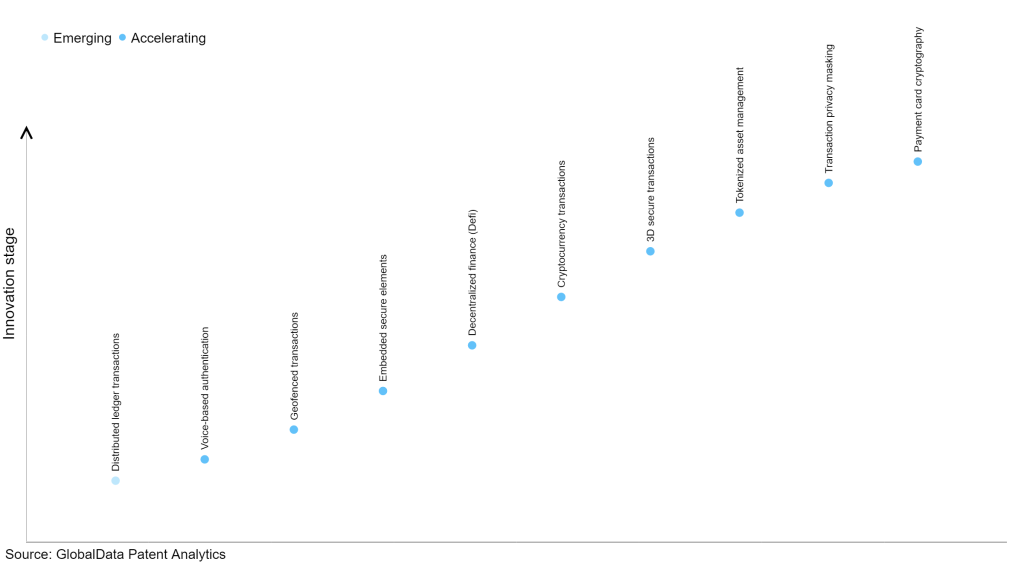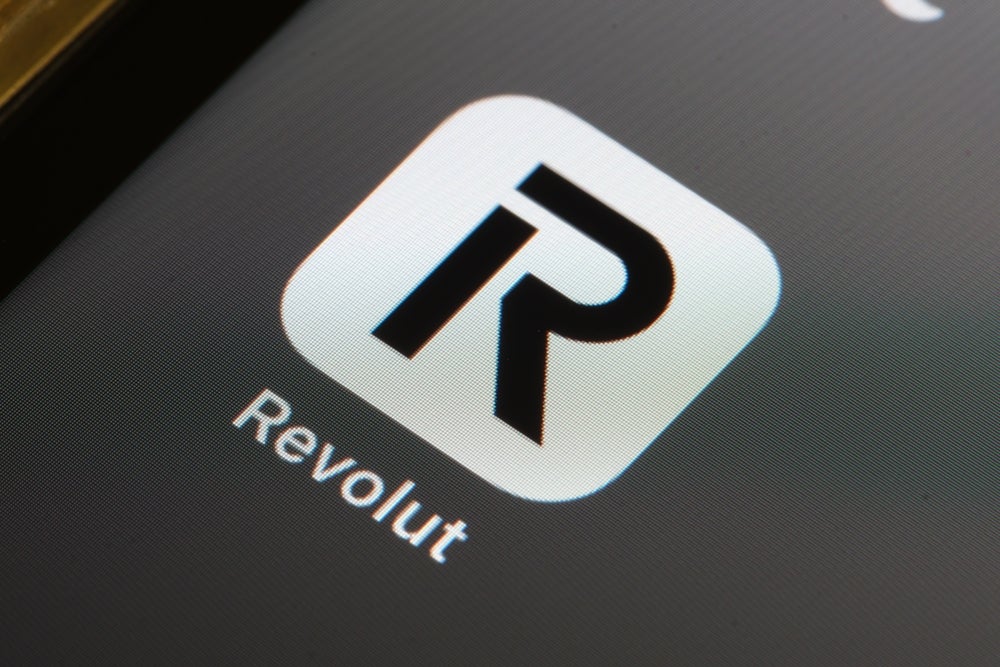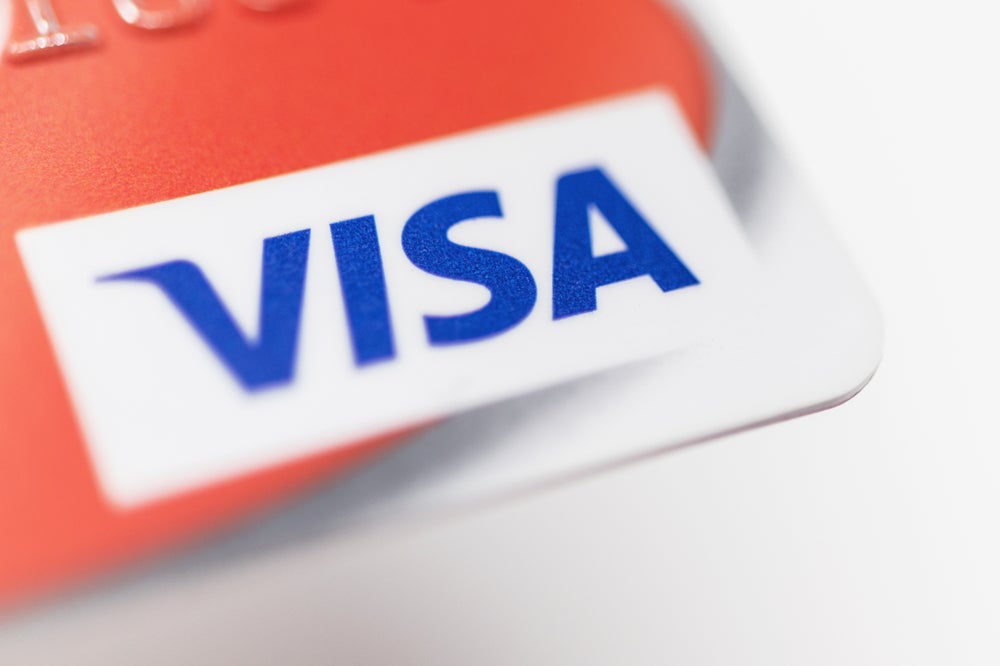The banking industry continues to be a hotbed of patent innovation. Activity is driven by digitalization, enhanced security, operational efficiency, ever changing consumer expectations, and growing importance of technologies such as artificial intelligence (AI), Internet of Things (IoT), and cybersecurity. In the last three years alone, there have been over 129,000 patents filed and granted in the banking industry, according to GlobalData’s report on Cybersecurity in banking: distributed ledger transactions. Buy the report here.
However, not all innovations are equal and nor do they follow a constant upward trend. Instead, their evolution takes the form of an S-shaped curve that reflects their typical lifecycle from early emergence to accelerating adoption, before finally stabilizing and reaching maturity.
Identifying where a particular innovation is on this journey, especially those that are in the emerging and accelerating stages, is essential for understanding their current level of adoption and the likely future trajectory and impact they will have.
30+ innovations will shape the banking industry
According to GlobalData’s Technology Foresights, which plots the S-curve for the banking industry using innovation intensity models built on over 165,000 patents, there are 30+ innovation areas that will shape the future of the industry.
Within the emerging innovation stage, distributed ledger transactions, is a disruptive technology that is in the early stages of application and should be tracked closely. Voice-based authentication, geofenced transactions, and embedded secure elements are some of the accelerating innovation areas, where adoption has been steadily increasing.
Innovation S-curve for cybersecurity in the banking industry

Distributed ledger transactions is a key innovation area in cybersecurity
Distributed ledger transactions refer to the use of blockchain technology to securely and transparently record, validate, and transfer ownership of digital assets or transactions across a decentralized network. The ledger is spread across a network of computers, making it almost impossible to modify or tamper with any transaction without being detected by the network.
GlobalData’s analysis also uncovers the companies at the forefront of each innovation area and assesses the potential reach and impact of their patenting activity across different applications and geographies. According to GlobalData, there are 100+ companies, spanning technology vendors, established banking companies, and up-and-coming start-ups engaged in the development and application of distributed ledger transactions.
Key players in distributed ledger transactions – a disruptive innovation in the banking industry
‘Application diversity’ measures the number of applications identified for each patent. It broadly splits companies into either ‘niche’ or ‘diversified’ innovators.
‘Geographic reach’ refers to the number of countries each patent is registered in. It reflects the breadth of geographic application intended, ranging from ‘global’ to ‘local’.
Patent volumes related to distributed ledger transaction
Source: GlobalData Patent Analytics
Among the companies innovating in distributed ledger transactions, nChain is one of the leading patent filers. The company was recently granted a patent for a method and system of verifying ownership of a digital asset using a distributed hash table and a peer-to-peer distributed ledger. Alibaba, Advanced New Technologies, and Ant Group are some of the other prominent patent filers in distributed ledger transactions.
In terms of application diversity, Ali Group held the top position, while BanQu and Security Matters stood in second and third positions, respectively. By means of geographic reach, nChain leads the pack, followed by Intel and Oracle.
To further understand the key themes and technologies disrupting the banking industry, access GlobalData’s latest thematic research report on Cybersecurity in Banking.
Data Insights
From

The gold standard of business intelligence.
Blending expert knowledge with cutting-edge technology, GlobalData’s unrivalled proprietary data will enable you to decode what’s happening in your market. You can make better informed decisions and gain a future-proof advantage over your competitors.






